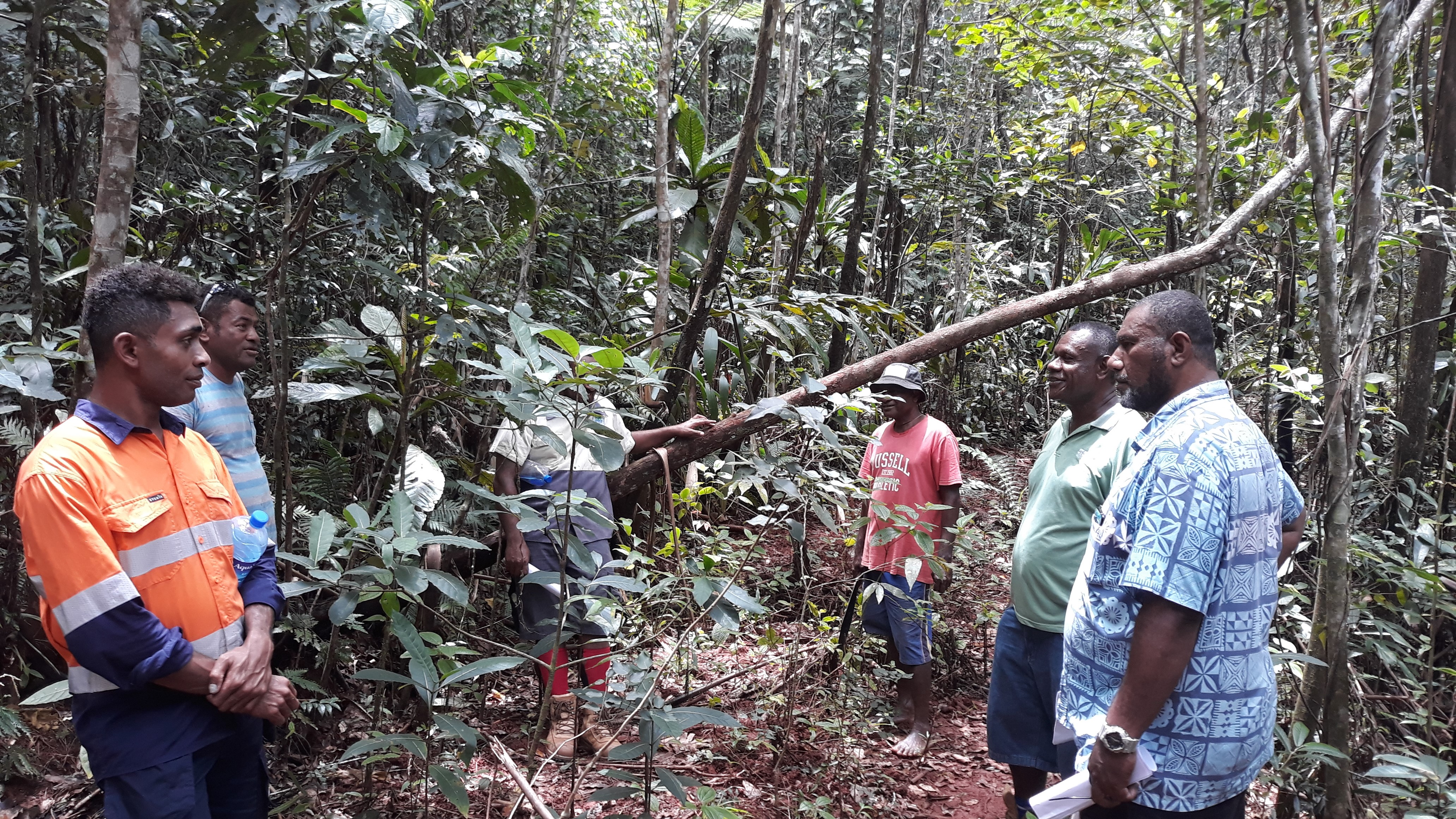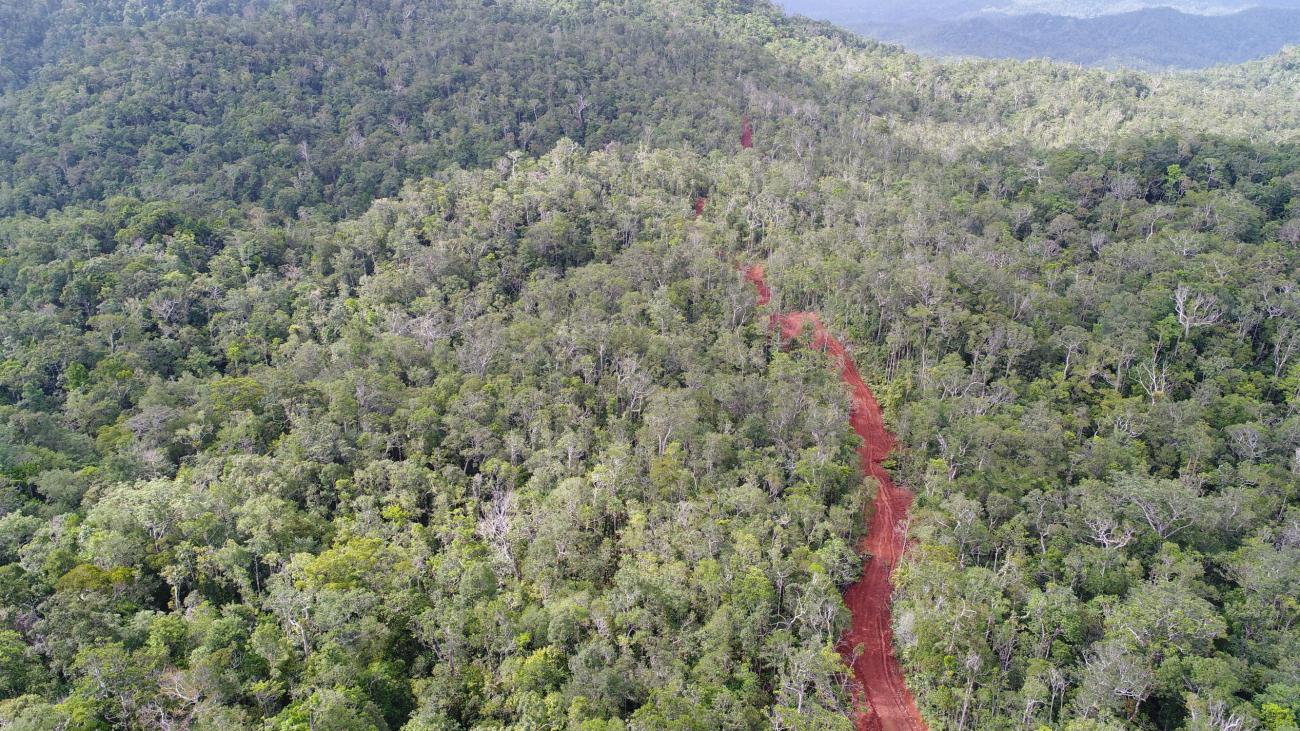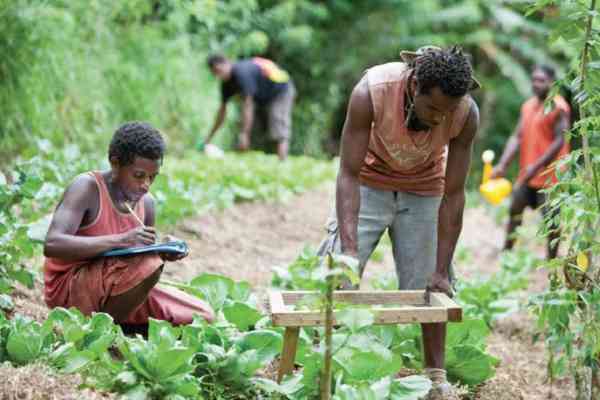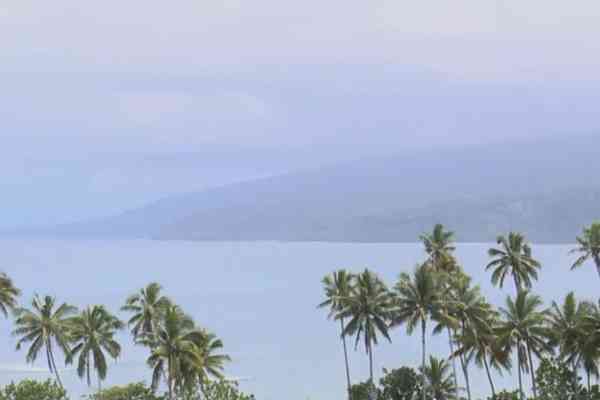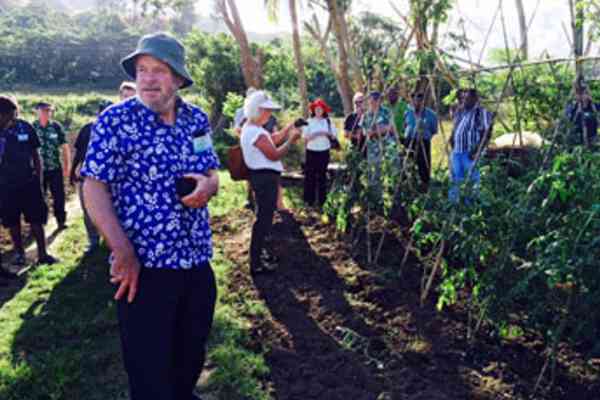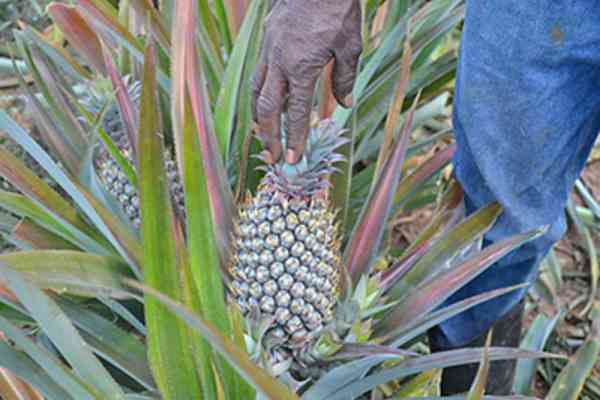Forests are called “the lungs of the earth” for good reason: their ability to draw in carbon dioxide and breathe out oxygen cleans our air and helps regulate the climate. Tropical rainforests, such as those found in the Pacific, are particularly effective, with immense lung capacity – the world’s largest rainforest, the Amazon, provides 20 percent of the earth’s oxygen.
Forests, however, are more than just oxygen tanks. They provide food, timber, energy and income to local communities and are important for protection against erosion and floods as well as for regulating the climate on the local, regional and global scale.
As the Pacific develops, forest rich countries such as Fiji, Papua New Guinea and the Solomon Islands are experiencing threats to these vital ecosystems due to poorly coordinated development, unsustainable logging and agricultural practices. The resulting losses hinder local community development and intensify climate change.
REDD+ (Reducing Emissions from Deforestation and Degradation), an initiative of the United Nations Framework Convention on Climate Change (UNFCCC) works to reduce, measure and report greenhouse gas emissions in forests. The Pacific Community (SPC), in cooperation with the German Agency for International Cooperation (GIZ) has been supporting the national governments of Fiji, Papua New Guinea, Solomon Islands and Vanuatu to fulfil REDD+ requirements.
Fiji and its three partner countries have been incorporating REDD+ into their national forest and climate policies for the past 10 years, with the project REDD+ Forest Conservation in Pacific Island Countries supporting this work. The project will wrap up this year, leaving valuable instruction how to secure our forests for the next generation.
The project operates on three levels – locally, nationally and regionally. At the regional level, forest and biomass inventories are supported. National support helps countries national REDD+ strategies.
At the local level, the project supports the development and implementation of demonstration activities and pilot projects, including projects for the voluntary carbon market. In Fiji, the communities of Drawa (Vanua Levu) and Emalu / Draubuta Village (Viti Levu) were involved in these activities. In addition, more than 30 years of scientific, applied research in Nakavu to establish sustainable forest management practices has accompanied these efforts and could be broadened to the national level.
Despite these forward strides, Fiji and other REDD+ countries in the Pacific still do not have full capacities to protect and conserve their forests. REDD+ therefore fosters development of skills and knowledge in the field, in addition to political reform processes to promote conservation. Awareness campaigns also support this knowledge distribution.
This growing knowledge and capacity will enable countries to receive results-based REDD+ payments. The payments secure the future implementation of REDD+ activities. The project also provides advice and support for accessing international climate financing that can lead to further conservation efforts.
The focus on knowledge and skills enhancement in partner organisations, relevant ministries and others outside the forestry sector is crucial. It establishes methods and approaches to sustainable forest management that can be enacted and will persist locally and nationally without requiring additional outside financial support.
In the Solomon Islands, for example, new knowledge and skills helped guide a forest inventory piloting and capacity building program that included over 50 forestry officers, university staff, students and community members. A National Forest Inventory (NFI) followed.
The NFI is a comprehensive nationwide forest assessment that is required as part of REDD+ and serves to estimate emission factors. As part of the fabric of the United Nations Framework Convention on Climate Change, the Forest Carbon Partnership Facility of the World Bank provides funding to developing countries – Fiji, PNG and Vanuatu are participating nations – to set up appropriate, robust national forest monitoring systems (NFMS).
As a crucial component of the NFMS, Fiji, Vanuatu and the Solomon Islands are implementing NFIs with the added support of SPC and the German Development Cooperation. The related planning processes have been shared in the form of a South-South dialogue.
The REDD+ Forest Conservation in Pacific Island Countries project, commissioned by the German Federal Ministry of the Environment, Nature Conservation and Nuclear Safety, is due to end in March this year. The local communities involved in the project – Drawa, Emalu and Nakavu – will meet through SPC and GIZ to exchange experiences, discuss lessons learned and come up with recommendations for the future.
Our lungs here in the Pacific will continue to need support as challenges to their healthy breathing continue to sprout. With Fiji and the Pacific standing on the frontlines of climate change, their conservation and protection are ever more critical. SPC and GIZ are working to ensure there is robust follow-up to the REDD+ project, building a foundation for the healthy Pacific forests of tomorrow.
